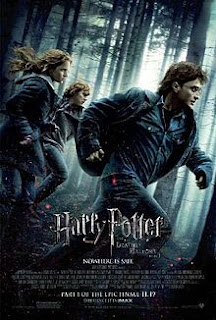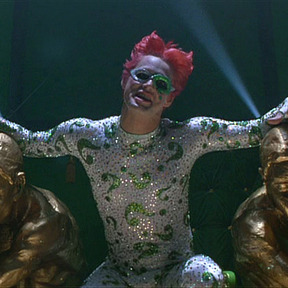I love me some film, and those faithful readers who have been following this blog since the first article will know that one of my favorite all time films is Children of Men, but sadly most people out there haven’t even heard of this film, let alone seen it and told their friends about it. Due to this lack of knowledge combined with the super high quality of the film, I think it’s only fitting that Children of Men be my pick for the February Rewind.
Children of Men tells the story of the decay of society following a planet wide infertility crisis in which every single female has apparently lost the ability to carry a child. In the face of this crisis, every major government has collapsed to revolutionaries and fear mongers except for London. Surviving refugees flock to London by the thousands, and as a result London has been transformed into a militarized police state which rounds up and “disappears” them into refugee camps scattered across the countryside. This has led to immigrants creating increasingly militant rights groups that have become more and more hostile as their rights become more and more trivial.
Enter our protagonist Theo Faron, a former activist turned bureaucratic government worker who has grown weary and disillusioned following the death of his son and the decline in hope through the world and has become just another hopeless citizen waiting for the world’s final clock to tick down. In fact, our first impression of Theo is utter apathy when he pushes past a group of shocked onlookers who are watching a story on the news about the youngest person in the world being killed (the equivalent in their world of the Pope being assassinated) just so he can order a cup of coffee. Even worse is that after this scene, even though the news of this persons death doesn’t even phase him, he doesn’t pass up the chance to use this as an excuse to go home early from work to “grieve”.
Theo is not your typical protagonist, he’s cynical, he’s angry, and at times he’s borderline depressed about the world dissolving around him, but as we see the world he lives in we understand why he is this way. In the opening scene we a café explode less than thirty feet behind him from a terrorist bombing mere moments after he leaves, but it doesn’t even phase him and he goes to work later that day like nothing happened. We get a sense that events like this have just become commonplace annoyances in this world, the way forgetting your wallet or losing your keys would be annoyances today. In fact things are so bad in this world that the government has taken to handing out suicide pills for those who just want to end the story early.
Theo’s world is turned upside down when he is kidnapped by a radical group of activists called “The Fishes” who bring him in front of the last person he expected to see, his estranged wife. She pays Theo to obtain immigration papers for a refugee name Kee and to escort her into the country, but while helping this young woman safely obtain passage Theo comes to realize the big secret behind her importance, Kee is pregnant.
Like most other dystopian films Children of Men is a film about hope in the face of adversity, but where this film distinguishes itself from other films is the fact that the hope feels particularly desperate and unlikely. Theo’s mission seems more than impractical, it seems flat out impossible, and as the plot moves forward not only does Theo’s mission seem less and less likely to succeed, but we see his desperation take him and Kee to some truly dark and dangerous places. Yet all of these dark and sometimes depressing turns manage to convey a sense of dread and fear in the audience that perfectly encapsulates the dark feeling of fear and abandonment that Theo and Kee must be facing.
Yeah… pretty much like that.
In fact, this may be one of the best movies I have ever seen when it comes to making the audience associate themselves with the characters and situations in the film, which in turn creates characters that we genuinely care about and want to succeed in their endeavors. It’s not just the writing (which is admittedly fantastic), it’s every single facet of the film, from the stellar cast, to the practical effects, to the intricate and original story being told by the film. All of these facets however, pale next to my favorite single component in the entire film, the single-shot sequences.
The single shot sequence is an idea and execution that has been used before, but never before has it been used as expertly or stylistically as in Children of Men. Basically, the single-shot sequence is an extended, unedited cut used for an extended period which, when used correctly, can bring a sense of realism to an intense scene by putting the audience directly into the scene. A good example of this shot can be seen in Harry Potter and the Prisoner of Azkaban (also by the same director) when Hermione and Harry use the time device to run through Hogwarts for a second time.
Here though, this effect is used for much longer periods of time, one of which is an intense action sequence and lasts over seven minutes. One of these sequences was so original and so hard to do that the crew had to create a special vehicle and camera rigging system just to be able to create the shot. The end result is a film so chock full of exciting and original cinematography that it creates a sense of excitement and suspense that no other film can even compare to. Another shot took place during an intense chase through a warzone that lasts over seven minutes without a single cut.
Remember a few articles back where I referred to camerawork as “The Ancient Lost Art of Giving a S**t”? Well this movie is a good example of how, with a little creative camerawork, you can create a scene that is light on special effects, but still sooooo much more impressive and involving than your typical Transformers kind of action film. The film comes off gritty and violent, almost like a wonderfully shot documentary in the middle of a war, and there are some brutally awesome violence like a guy getting his face smashed in with a car battery. In fact I haven’t seen camerawork this original and crisp since Sam Raimi, and this film shows that there are still talented directors out there (rare, but still out there) that have original ideas that they can share with the rest of Hollywood to break up the monotonous piles of action movie crap being shoveled into our faces.
Seriously Hollywood… WTF?
As much as I loved the camerawork though, it’s just one facet of a film that just plain fired on all cylinders. The story is powerful and involving, and offers a realistic alternative to how the world might possibly end, through the machinations of science instead of hatred or violence between countries. The characters are wonderfully written as well, and whether it’s Clive Owen as the cynical Theo, Julianne Moore as the idealistic Julian, or Michael Caine as the disillusioned and bitter stoner Jasper (yes, this film has a stoner Michael Caine in it), every character is believable and likeable in the desperation of the world’s dire situation.
Another facet of this movie that worked really well was the fact that the antagonist was realistic and thoroughly believable in the pursuit of his goals. I can’t really talk too much about the villain without revealing some of the surprises of the film, but in this day and age of villains being cardboard cutouts of bad guys doing bad guy things for bad guys sake, it’s really refreshing to see an anti-hero like this who we can associate with in their misguided but genuine beliefs that what they are doing is noble and the right thing to do. Even more impressive is the fact that someone so unassuming and dignified could really be so capable of the horrible things he plans.
When casting antagonists it is generally a good idea to refrain from casting big names in the roles, particularly if this role is a well known one. An overly popular actor portraying the role of what is essentially the second banana can detract from the importance of the protagonist, and most great movie will go out of their way to ensure they cast a B-actor at the highest to maintain the appropriate levels of importance. A lot of times poorly chosen “in thing” A-list actors are cast into roles not because they can properly portray the character, but because casting directors think this is what kids will pay to go see on the big screen. This sort of casting can be… awkward.
Pictured: Evil Incarnate
No better example of this can be found than in the abysmal Fantastic Four film. While she may not have been the antagonist of the film, Jessica Alba’s turn as the legendary Sue Storm was nothing short of nauseating due to the worst casting imaginable. Apparently a casting director read the description “Fair skinned: Blue-eyed: Blond Haired: and mid thirties” and said “Hey, I’m sure a twenty-something Latina girl would be PERFECT for this role!” Pop in some creepy as hell blue contacts, a horrendous looking wig, and bam! You’d never know the difference. If you could change her looks so heavily if it meant landing a talented actress like Meryl Streep or Sigourney Weaver that’s one thing, but Alba stinks up everything she’s ever been in with her acting, relying solely on her looks to get her countless roles.
Pictured: Acting
Once she opened her mouth in Fantastic Four, all bets were off.
With it’s beautiful writing, gorgeously shot scenes, fantastic acting, and solid supporting cast, Children of Men still ranks as one of my top five films of all time. This is a powerful film, and should not be seen as a feel good film due to its brutal violence and incredibly dark content, but at the end of the day it still conveys that beautiful bit of hope buried in the darkest of places.
10 out of 10




No comments:
Post a Comment